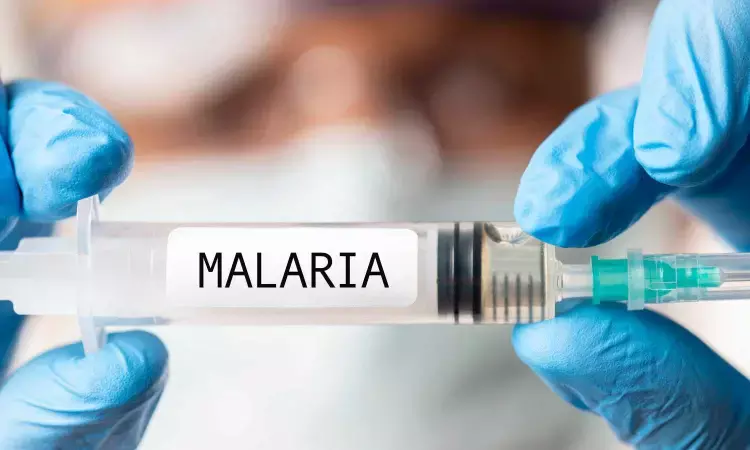- Home
- Medical news & Guidelines
- Anesthesiology
- Cardiology and CTVS
- Critical Care
- Dentistry
- Dermatology
- Diabetes and Endocrinology
- ENT
- Gastroenterology
- Medicine
- Nephrology
- Neurology
- Obstretics-Gynaecology
- Oncology
- Ophthalmology
- Orthopaedics
- Pediatrics-Neonatology
- Psychiatry
- Pulmonology
- Radiology
- Surgery
- Urology
- Laboratory Medicine
- Diet
- Nursing
- Paramedical
- Physiotherapy
- Health news
- Fact Check
- Bone Health Fact Check
- Brain Health Fact Check
- Cancer Related Fact Check
- Child Care Fact Check
- Dental and oral health fact check
- Diabetes and metabolic health fact check
- Diet and Nutrition Fact Check
- Eye and ENT Care Fact Check
- Fitness fact check
- Gut health fact check
- Heart health fact check
- Kidney health fact check
- Medical education fact check
- Men's health fact check
- Respiratory fact check
- Skin and hair care fact check
- Vaccine and Immunization fact check
- Women's health fact check
- AYUSH
- State News
- Andaman and Nicobar Islands
- Andhra Pradesh
- Arunachal Pradesh
- Assam
- Bihar
- Chandigarh
- Chattisgarh
- Dadra and Nagar Haveli
- Daman and Diu
- Delhi
- Goa
- Gujarat
- Haryana
- Himachal Pradesh
- Jammu & Kashmir
- Jharkhand
- Karnataka
- Kerala
- Ladakh
- Lakshadweep
- Madhya Pradesh
- Maharashtra
- Manipur
- Meghalaya
- Mizoram
- Nagaland
- Odisha
- Puducherry
- Punjab
- Rajasthan
- Sikkim
- Tamil Nadu
- Telangana
- Tripura
- Uttar Pradesh
- Uttrakhand
- West Bengal
- Medical Education
- Industry
WHO adds SII-Oxford University Malaria vaccine to its list of prequalified vaccines

R21 Vaccine Not for India Yet, Government Informs Parliament
The prequalification of the world's second malaria vaccine, developed by Oxford University and manufactured by Serum Institute of India, is poised to expand access to malaria prevention through vaccination.
Geneva: WHO has added the R21/Matrix-M malaria vaccine to its list of prequalified vaccines. In October 2023, WHO recommended its use for the prevention of malaria in children following the advice of the WHO Strategic Advisory Group of Experts (SAGE) on Immunization and the Malaria Policy Advisory Group.
Read also: Serum Institute-Oxford University malaria vaccine bags WHO recommendation
The prequalification means larger access to vaccines as a key tool to prevent malaria in children with it being a prerequisite for vaccine procurement by UNICEF and funding support for deployment by Gavi, the Vaccine Alliance.
The R21 vaccine is the second malaria vaccine prequalified by WHO, following the RTS,S/AS01 vaccine which obtained prequalification status in July 2022. Both vaccines are shown to be safe and effective in clinical trials, for preventing malaria in children. When implemented broadly, along with other recommended malaria control interventions, they are expected to have a high public health impact.
Malaria, a mosquito-borne disease, places a particularly high burden on children in the African Region, where nearly half a million children die from the disease each year. Globally, in 2022, there were an estimated 249 million malaria cases and 608 000 malaria deaths across 85 countries.
The prequalification of the world’s second malaria vaccine, developed by Oxford University and manufactured by Serum Institute of India, is poised to expand access to malaria prevention through vaccination. Demand for malaria vaccines is high but the supply has thus far been limited. The availability of two WHO recommended and prequalified malaria vaccines is expected to increase supply to meet the high demand from African countries and result in sufficient vaccine doses to benefit all children living in areas where malaria is a significant public health risk.
Dr Rogério Gaspar, Director of the Department of Regulation and Prequalification at WHO said, "Achieving WHO vaccine prequalification ensures that vaccines used in global immunization programmes are safe and effective within their conditions of use in the targeted health systems. WHO evaluates multiple products for prequalification each year and core to this work is ensuring greater access to safe, effective and quality health products".
Dr Kate O’Brien, Director of WHO's Department of Immunization, Vaccines and Biologicals, said, "Today marks a huge stride in global health as we welcome the prequalification of R21/Matrix-M, the second malaria vaccine recommended for children in malaria endemic areas. This achievement underscores our relentless commitment to wiping out malaria which remains a formidable foe causing child suffering and death. This is another step toward ensuring a healthier, more resilient future for those who have lived for too long in fear of what malaria could do to their children. Together with our partners we are united in the pursuit of a malaria-free future, where every life is shielded from the threat of this disease.”
As part of the prequalification process, WHO applies international standards to comprehensively evaluate and determine whether vaccines are safe, effective and manufactured to international standards. WHO also ensures the continued safety and efficacy of prequalified vaccines through, for example, regular re-evaluation, site inspection and targeted testing. Prequalification supports the specific needs of national immunization programmes with regards to vaccine characteristics such as potency, thermostability, presentation, labelling and shipping conditions
Ruchika Sharma joined Medical Dialogue as an Correspondent for the Business Section in 2019. She covers all the updates in the Pharmaceutical field, Policy, Insurance, Business Healthcare, Medical News, Health News, Pharma News, Healthcare and Investment. She has completed her B.Com from Delhi University and then pursued postgraduation in M.Com. She can be contacted at editorial@medicaldialogues.in Contact no. 011-43720751


